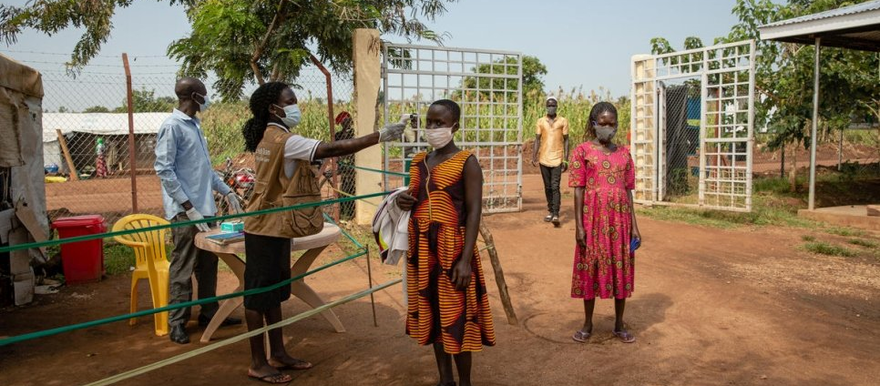A recent UNHCR/World Bank phone survey reveals the devastating toll of Covid-19 on the living conditions of refugees in Uganda and highlights the need for strengthened support to refugee communities, to mitigate the suffering inflicted by the pandemic, UNHCR said in a press release Thursday.
The survey shows that refugees in Uganda were faring far worse than their host community on key dimensions to welfare, such as employment, food security, and mental health. It adds to UNHCR’s recording of an alarming increase in the number of suicides among refugees, linked to the pandemic’s disastrous socio-economic impact.
“While the pandemic has affected all communities, refugees have been hit particularly hard. With a second COVID-19 wave in full swing in Uganda, I am very concerned that the living conditions of refugees may not only deteriorate but become untenable,” said Joel Boutroue, UNHCR Representative to Uganda.
Uganda hosts the largest refugee population in Africa, with some 1.5 million people mainly from South Sudan and the Democratic Republic of the Congo. By March 2021, the employment rates for these communities had dropped to 32 percent, falling by 24 percentage points in comparison to pre-lockdown times. In contrast, after an initial drop, the host community’s employment rates were able to return to pre-pandemic levels.
According to UNHCR, half of the refugees participating in the survey were projected to live under the poverty line – compared to 44 percent before the Covid-19 pandemic. About 36 percent did not have access to medicines when needed and were unable to access sufficient amounts of drinking water.
“Food insecurity among refugees, measured as the share of households that have run out of food, was much higher than among their host communities (64 versus 9 percent). Refugees were forced to reduce the amount and frequency of meals eaten in a day. According to UNHCR’s own data, negative coping mechanisms such as survival sex and child marriage became more common during the pandemic because of severe economic hardship and reduced food assistance,” the statement read in part.
“Twice as many refugee households had to borrow money to face the Covid-19 emergency in comparison to the host community. In parallel, the share of refugee households that did not receive any social assistance – such as cash transfers, food aid, or other in-kind assistance – almost tripled in the capital, Kampala,” The refugee agency said. “Meanwhile, depression disproportionately affected refugees, at a percentage ten times higher than that of the host community (54 versus five percent).”
According to the statement, the consequences of the pandemic increased despair. A separate UNHCR analysis revealed that the total number of attempted and completed suicides among refugees in 2020 increased by 129 percent compared to 2019, with a total of 347 suicide incidents last year. Data on suicides from the first quarter of 2021 are equally worrying – with 76 recorded incidents, compared to 68 in the same period of 2020. Most cases concern young women affected by gender-based violence – as recorded incidents of gender-based violence almost doubled compared to the first quarter of 2020, reaching 1,394. Lack of income and food insecurity within refugee households have significantly contributed to these incidents.
“I applaud Uganda’s inclusive approach to refugees and call on the international community to pay closer attention to the gaps in basic needs of an already vulnerable population,” said Boutroue. “More resources are needed to meet not only the basic needs of refugees, including food and access to water but also to provide better support for livelihoods, education and mental health.”




